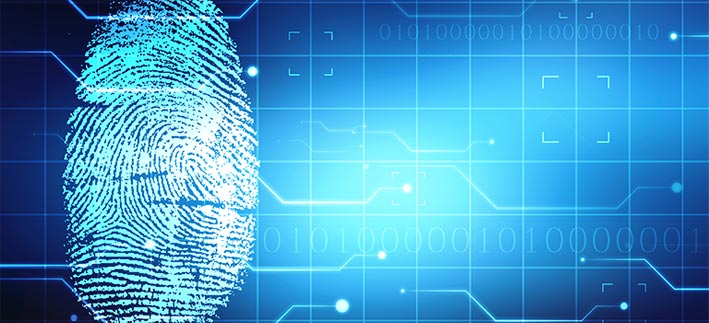Applying Digital Forensics to Everyday Life
Keeping personal information private is becoming increasingly more important as the age of technology persists. People are connected to their devices more now than ever before and as people become more dependent on technology, digital hackers are also becoming increasingly apparent. Digital hackers are getting tactful and creative with their hacking abilities and strategies. Hackers’ goals are to erase, alter, and/or exploit personal information found on computers, mobile devices, email, and social media accounts, and other messaging platforms.

Hacking has become such an issue in today’s society, that computer forensic services such as IT Acceleration has become skilled and trained in recovering data that had been lost from hackers manipulating a website, account or device.
In order to prevent losing data and possibly having to recover information, it’s important to know the specifics of digital forensics and how it can protect you in various aspects of everyday life.
What is Digital Forensics?
Digital forensics is a form of forensic science that deals with recovering and analyzing data that has been altered or erased. The purpose of digital forensics is to search for, preserve, and then analyze information found on a computer system or device using complex investigation tools.
A digital forensic investigator can seize the information of various degrees and lengths. After the information is retrieved, investigators and law officials relate the information to the court case to determine its relevance and importance.
Digital forensics is especially important in court when the case has to do with a computer crime; the use of digital forensics allows investigators to retrieve information and use it as evidence. However, this form of investigation can also be helpful for other sorts of court cases; such as cases of murder, harassment, or theft. A digital forensic investigator is able to retrieve various kinds of information that can prove whether or not a crime was premeditated or not, and who it was committed by if there are multiple suspects.
How is Digital Forensics Helpful in Investigations?
Digital forensics is becoming extremely popular in court cases because of the beneficial proof that it provides to law officials in the courtroom. Digital forensics can be used in a number of ways, but the most popular are:
- Data breaches of corporate or government documents
- Restoring deleted company or personal emails
- Restoring deleted messages
- Determining and examining the history on a device or computer
- Restoring receipts
Experts use a systematic approach to examine all kinds of layers of evidence once a court or other law official requests it.
After the information has been located, it is preserved and analyzed by digital forensic investigators before it’s used as evidence in a trial. There are typically 5 steps that digital forensic investigators use when collecting data or information for a trial:
1. Policy and Procedure Development
Digital forensic investigators establish guidelines and procedures when they are about to conduct an investigation. These guidelines establish detailed instructions about the process of the investigation they are about to conduct as well as why they are conducting it and what they are aiming to find.
2. Evidence Assessment
Digital forensic investigators sift through devices, websites, and accounts in order to find information that was erased or changed. The investigator has to then determine the relevance the evidence has and how it pertains to the court case.
3. Evidence Acquisition
Investigators must preserve the information they find.
4. Evidence Examination
Digital forensic investigators have to then carefully examine and analyze the information they discovered to make sure it is relevant before presenting it in court, this is a more in-depth step than the evidence assessment because this looks at more specific information.
5. Documenting and Reporting
Once the information has been classified as relevant to a court case, it will be reported to law officials and will be presented in court as evidence.
You May Find Interesting:
– How to Remove Malware that Keeps Coming Back
Digital Forensics in Everyday Life
In addition to being helpful in court cases, digital forensics can also be helpful in everyday life scenarios, specifically when applied to cybersecurity. Digital forensics has allowed investigators to design cybersecurity systems with the information that has been discovered from various court cases. These cybersecurity techniques can be applied to everyday life and can be beneficial in keeping personal information private and safe from hackers.
In Your Home
Keeping your home life private is important, cybersecurity allows you to keep all aspects of you and your home private.
Digital forensics and cybersecurity have come up with technology to allow you to protect your home devices and networks. Hackers and digital attackers can make their way into personal accounts and steal or exploit personal information if Wi-Fi is not secured, or if there are holes within the software being used. Because of digital forensics working with cases that dealt with issues within home security, cybersecurity companies have developed complex security software to prevent outside attacks from using an encrypted code to steal personal information from your at-home devices.
The easiest home security software developed from digital forensic information is a VPN or, a virtual private network. This network extends a personal private network across a bigger network which allows users to send and receive information without the worry that it will fall into the hands of a hacker or be manipulated in any way. VPS are affordable and can be installed on the home router or on any device that connects to the larger network. VPNs are especially great for people who work from home often.
Another way to ensure security at home is to install a firewall. A firewall was originally designed for PC use, but now has much broader uses and can be used on routers and other devices. Firewalls protect your network from hackers and keep people that are not connected to your router out.
It’s also key to have a strong administrator password for your Wi-Fi. This simple task makes it hard for potential hackers to access any information that may be on your devices that are connected to this Wi-Fi.
In Your Business
Businesses, especially those that deal with large amounts of money or highly classified information, are often subject to hackers. With the use of digital forensics, cybersecurity tools and tips for businesses were also developed.
Businesses that send important documents using a router should change the default IP address on the router often. Similarly, turning off the DHCP (Dynamic Host Configuration Protocol) function on the router could also keep hackers out. This enhances wireless network security because it creates fewer ways for an outside person to join the network and manipulate, erase, or steal classified documents.
It’s important to always keep your router up to date at work. Hackers are able to see when devices and software are not up to date and will take advantage of this. As security issues are discovered in routers, router companies create updates to fix the holes to prevent hackers from using a router that is not theirs.
Learn: How to Protect Windows 10 from Malware & Hacking
Stay Informed
Securing your personal information should be a task that is practiced by anyone that uses a computer or other device. The best way to ensure that you are not hacked and are using all of the information that digital forensic investigators have discovered is to stay up to date with digital forensic news and updates. By staying informed, there will be a smaller chance of your personal information being deleted or altered from an outside source.
 Bio: Jennifer Bell is a freelance writer, blogger, dog-enthusiast and avid beachgoer operating out of Southern New Jersey
Bio: Jennifer Bell is a freelance writer, blogger, dog-enthusiast and avid beachgoer operating out of Southern New Jersey
